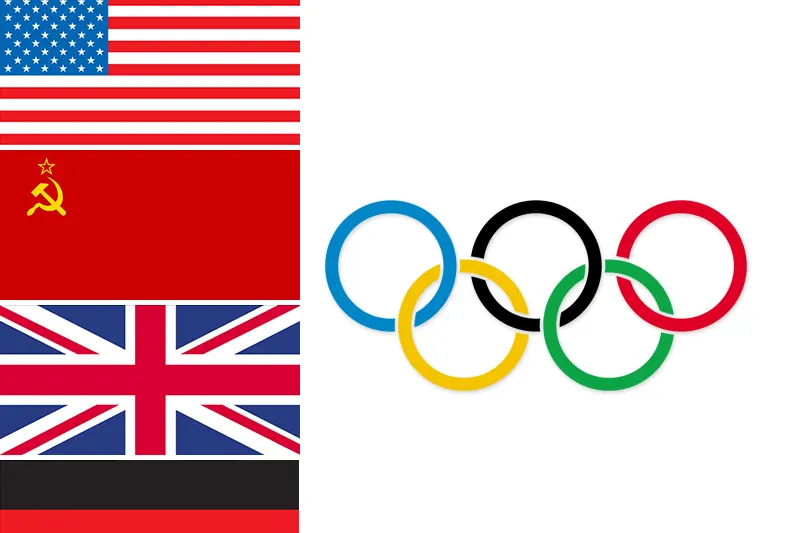The Tokyo 2020 Olympic Games have certainly been interesting. There were many great individual stories and surprises, but the top 10 medal-winning countries were the usual suspects. Canada came in 11th in total medals.
We know who the world’s best decathlete was in Tokyo, Canada’s Damian Warner. But which country has the best Olympic strategy? Meaning which one gets the best ROI from its financial and human resources? It isn’t China, the United States or Russia.
Methodology
Our analysis requires some imperfect but necessary assumptions:
- The KPI (key performance indicator) is total medals.
- Use combined total medal results of the Tokyo 2120 and PyeongChang 2018 (Winter) Olympics. Emphasis on summer or winter games is clearly a strategy decision.
- Use medals per capita [1] as the best realistic proxy for ranking a country’s performance. Accurate and comparable spending on Olympic participation by country is not readily available.
Results
| Rank | Country | Medals/Pop (M) | Pop (M) |
|---|---|---|---|
| 1 | Norway | 7.19 | 5.4 |
| 2 | New Zealand | 4.56 | 4.8 |
| 3 | Netherlands | 3.27 | 17.1 |
| 4 | Sweden | 2.48 | 10.1 |
| 5 | Hungary | 2.17 | 9.7 |
| 7 | Canada | 1.32 | 37.7 |
| 13 | Russia | .47 | 145.9 |
| 14 | United States | .34 | 331.0 |
| 15 | China | .08 | 1,439.3 |
Winning Olympic Strategy
Norway is way ahead at 7.2 medals per million population. The Norwegians do this by dominating Winter Olympics with modest Summer Olympics participation. As with all countries in the first five rows, they focus on individual and small-team events and not large-team events like hockey, basketball and baseball. Have they all been reading Michael Porter?
New Zealand does the same thing, focusing on Summer Olympics. Norway and New Zealand have (relatively) tiny populations in the 5M range and both choose to focus on events best matching their climates and geography.
Netherlands surprises in that they crack the top 10 in total medals in both Summer and Winter Olympics. Right behind powerhouse Germany, but with a fifth the population!
Hungary also surprises. Summer Olympic focus but no obvious event focus. Multiple medals came from the large-team sport of water polo. It is tempting to speculate the current Prime Minister is over-spending to make a worldwide political statement (a tactic in every wannabe or de facto dictator’s playbook), yet Hungary has a decades-long history of over-performing. Tokyo 2020 is not an outlier.
Lessons for Marketers
Clearly, money makes for medals. Look no further than the ‘host country effect’, evident once again in Tokyo. But it doesn’t explain long term success from countries other than the superpowers.
China, US and Russia are to Olympic performance as Amazon, P&G and Unilever are to the marketing world—the ones with the most products and greatest spending. They can be outperformed, in relative or even absolute terms, through strategic focus.
Norway, with less population than the Toronto CMA, far outperforms the Olympic superpowers in relative terms. They can top the medal count in Winter Olympics. They win big with much less. Your small or medium-sized brand can do the same, starting with a comprehensive SWAT analysis and the focus strategy that flows from it. And just like a national Olympic development program, brand success requires consistency in overall approach, and a little patience.






Malcolm Gladwell ( @Gladwell ) has covered a similar topic in his most recent ‘Oh, MG’ newsletter: https://malcolmgladwell.bulletin.com/495802294848806
Following from that discussion: I think a small country’s event focus starts with the ‘endowment’ of one, or a few, naturally-gifted athletes. With some success, it then becomes ‘capitalized’. But it needs to be a focused capitalization to work in the long term. Thank you Mr. Gladwell, for your always interesting point of view!
statista.com just posted a review of 2018 per capita spending on all levels of education by country: https://www.statista.com/chart/15434/the-countries-spending-the-most-on-education/
Perhaps not surprisingly, the top two countries in that analysis are the same top two in ours, here.